Jul 9, 2024 11:35 AM
Trumpeter, Educator Jim Rotondi Dies at 61
Jim Rotondi, a renowned hard-bop trumpeter, composer and educator, died suddenly on July 7 at a hospital in France. He…
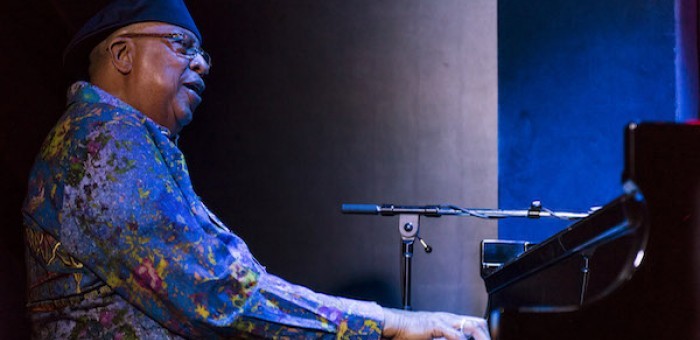
Chucho Valdés performs at Birdland in New York City as part of a six-night engagement at the venue.
(Photo: ©Jack Vartoogian/FrontRowPhotos.com)Most 75-year-olds residing in Miami, Florida, aspire to a comfortable retirement. Not so for master pianist-composer Chucho Valdés, who keeps homes there and in Malaga, Spain, with his wife and 10-year-old son, while sustaining a busy touring schedule in various contexts. One of those contexts is his virtuoso quartet—comprised of the bassist Gastón Joya, drummer Rodney Barreto and percussionist Yaroldy Abreu Robles, all young veterans of Irakere, which Valdés founded in Cuba during the ’60s. That group, which in 2016 released the album Tribute to Irakere (Live in Marciac) (Jazz Village), entered Manhattan’s Blue Note on May 9 for a six-night engagement, after playing the New Orleans Jazz and Heritage Festival two days before.
On May 10, Valdés opened the first set by unleashing his incomparably efflorescent chops on “Conga-Danza,” which the maestro composed during the 1970s and recorded both on Tribute To Irakere and the 2013 combo album Border Free. After a bravura opening section in which Valdés and the drummers operated in jaw-dropping synchronicity, Valdés launched a kaleidoscopic declamation, in which he built to volcanic peaks, scaled down to a simmering rubato solo section, and re-ascended to a fierce montuno, before giving it to the drummers, who improvised over the form as one voice.
There followed “Punto Cubano,” Valdés’ refraction of a rural, son-like Cuban folk song into the Latin-jazz context. Switching off between mezzo delicacy and forte declarations, Valdés developed the pungent melody, juxtaposing vertiginous double-time passages with block chords as Abreu Robles’ accompanied on a small shaker. Joya’s no-limits bass solo sustained the intensity.
Kenny Garrett played alto saxophone on two numbers, the first being “Guajira Para Bruce,” Valdés’ homage to the late Bruce Lundvall, who sponsored the documentation of much of Valdés’ musical production with Irakere and his other ensembles during his respective tenures at Columbia and Blue Note. After Valdés caressed the elegiac opening, accompanied by Abreu on chimes and a conical percussion instrument, he entered comp mode as Garrett built a keening, emotional statement that hewed close to the melody. Then he commenced a meditative solo, exploring contrapuntal possibilities. The final section was celebratory, spurring long, forceful lines from Garrett.
Garrett wailed multiple choruses over Valdés force-of-nature montuno on “Mambo Influenciado,” a descarga from the composer’s early years that is a well-disguised contrafact of Dizzy Gillespie’s “Bebop.” Early in his solo, Valdés quoted John Carisi’s “Israel,” then indulged himself over multiple choruses on a Bud Powell-to-Cecil Taylor statement, at one point playing rhythmically independent lines in the right and left hands, climaxing the flow with clusters executed with the palm of his right hand. The piece concluded with Barreto and Abreu again improvising melodically over the form.
After Garrett stepped down, Valdés offered a cappella ruminations, applying a Bill Evans-meets-bolero-meets-Art Tatum sensibility to a chorus or two of “My Romance,” then segueing to “Waltz For Debby,” before conjuring a speed-of-light fantasia on George Gershwin’s “But Not For Me” (documented at a more moderate tempo on 1998’s Bele Bele En La Habana), at one point playing the melody with the left hand while spinning out whirling variations with the right.
Two voices from different parts of the room simultaneously requested Ernesto Lecuona’s “La Comparsa,” on which Valdés famously duetted with his father, Bebo Valdés, in the film Calle 54, and recorded soon after on the 2003 album New Conceptions. On this evening, Valdés referenced the dance-inducing arrangement from the latter version, constructing an ebullient, ascendant solo that placed his still otherworldly chops and vivid imagination at the service of the song.
Those admirers, along with Valdés’ huge international fan base, should be pleased to absorb a slew of near-term projects that Valdés mentioned to DownBeat after the set—a forthcoming duo tour with Gonzalo Rubalcaba and one with his other quartet (Abreu on percussion, Yelsy Heredia on bass, and Pico Mónaco on drums); a hoped-for recording project with Garrett; a prospective release documenting a week with Joe Lovano at Birdland last November; and the September release on Motéma of a project on which he and Arturo O’Farill (son of Chico O’Farrill) join their own gifted offspring in celebrating the oeuvres of their fathers. DB
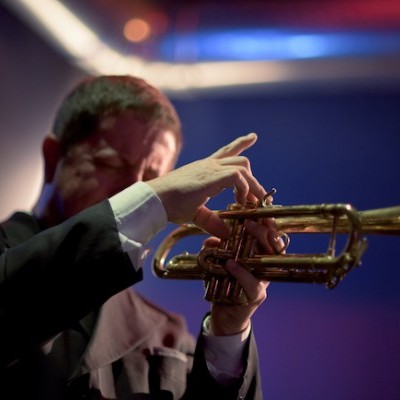
Jim Rotondi was acclaimed for his wide, round trumpet tone, remarkable virtuosity and assured swing.
Jul 9, 2024 11:35 AM
Jim Rotondi, a renowned hard-bop trumpeter, composer and educator, died suddenly on July 7 at a hospital in France. He…
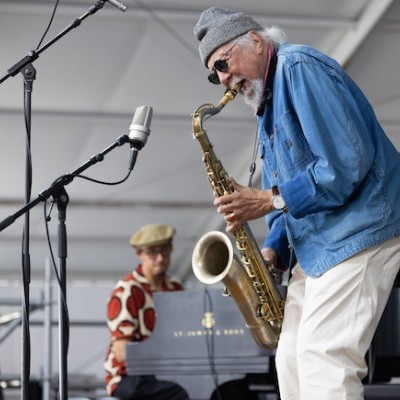
Charles Lloyd, seen here at the 2024 New Orleans Jazz & Heritage Festival, makes DownBeat Poll history!
Jul 11, 2024 12:23 PM
The incomparable Charles Lloyd swept the 72nd Annual DownBeat Critics Poll, becoming the first artist ever to earn…
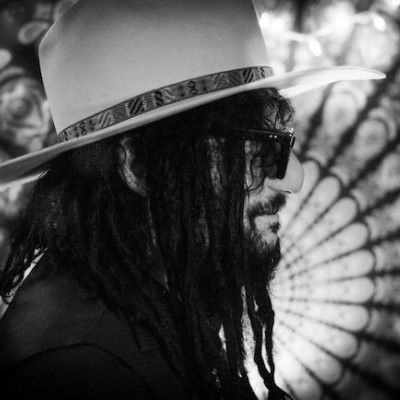
“Being president of Blue Note has been one of the coolest things that ever happened to me,” Was said. “It’s a gas to serve as one of the caretakers of that legacy.”
Jun 4, 2024 12:21 PM
Sitting with Don Was is a comfortable and unhurried exercise. He may seem slightly reserved at first, but ideas and…
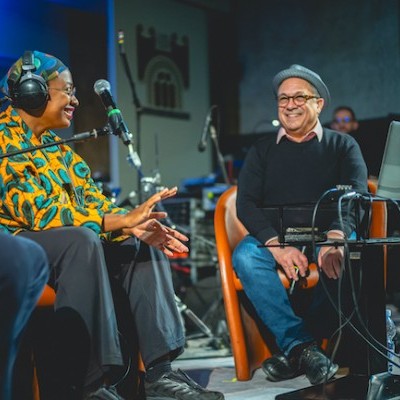
“She reminds me of my childhood and makes we want to cry,” Cécile McLorin Salvant, pictured here with writer Ashley Kahn, said of Dianne Reeves.
Jun 11, 2024 12:31 PM
Italy’s Umbria Jazz Winter is one of those rare annual festivals that not only coincides with a major holiday —…
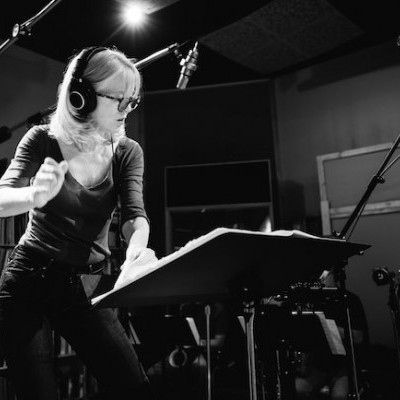
Maria Schneider said of Decades, her new compilation release: “I just wanted to create something, put it in a beautiful box and say, ‘Look at what we did.‘”
Jun 18, 2024 12:00 PM
Maria Schneider opened the sleek black box and placed it on a coffee table in her Manhattan apartment. Inside lay the…